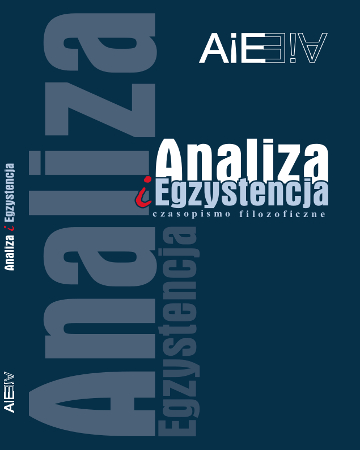
ISSN: 1734-9923
eISSN: 2300-7621
OAI
DOI: 10.18276/aie.2021.53-02





Lista wydań /
53 (2021)
The Paradoxes of Tolerance: A Deconstructive View
| Autorzy: |
Giorgi
Tskhadaia

Caucasus University |
| Słowa kluczowe: | Tolerance Paradoxes Derrida Forst Habermas. |
| Data publikacji całości: | 2021-03 |
| Liczba stron: | 17 (25-41) |
Abstrakt
The neo-Kantian, deontological liberal theory seeks to overcome the paradoxes of tolerance. It claims to accomplish this task by grounding tolerance in purportedly universal higher-order moral reasoning. I argue that in reality, such an approach cannot separate tolerance from particular ethical norms or empirical realities. For this reason, it cannot resolve the paradoxes of tolerance. However, I contend there is another path to account for the value of tolerating “others”. Jacques Derrida’s deconstruction provides us the way to retain the necessarily particularistic character of tolerance, without forfeiting its context-transcending, “universalistic” potential. In this article, I show that the paradoxes of tolerance need to be maintained as quasi-transcendental structures, instead of being discarded in the name of higher-order moral reasoning.
Pobierz plik
Plik artykułu
Bibliografia
| 1. | Beardsworth, R. (1996) Derrida & the Political. London and New York: Routledge. |
| 2. | Bennington, G. (1993) Jacques Derrida. Chicago and London: The University of Chicago Press. |
| 3. | Bennington, G. (2000) Interrupting Derrida. London and New York: Routledge. |
| 4. | Cheah, P, and Guerlac S. (eds) (2009) Derrida and the Time of the Political. Durham and London: Duke University Press. |
| 5. | Chisholm, R. (1982) Brentano and Meinong Studies. Atlantic Highlands, N.J.: Humanities Press. |
| 6. | Derrida, J (1982) Margins of Philosophy. Brighton, Sussex: The Harvester Press. |
| 7. | Derrida, J. (1992a) Deconstruction and the Possibility of Justice. New York: Routledge. |
| 8. | Derrida, J. (1992b) Given Time I. Counterfeit Money. London: The University of Chicago Press. |
| 9. | Derrida, J. (1994) Specters of Marx: The State of the Debt, the Work of Mourning and the New International. New York: Routledge. |
| 10. | Derrida, J. (2000a) Of Hospitality: Anne Dufourmantelle Invites Jacques Derrida to Respond. Stanford: Stanford University Press. |
| 11. | Derrida, J. (2002) Acts of Religion. New York and London: Routledge. |
| 12. | Derrida, J. (2005a) On Cosmopolitanism and Forgiveness. London and New York: Routledge. |
| 13. | Derrida, J. (2005b) Paper Machine. Stanford: Stanford University Press. |
| 14. | Derrida, J. (2005c) Rogues: Two Essays on Reason. Stanford: Stanford University Press. |
| 15. | Doyon, M. (2014) The Transcendental Claim of Deconstruction. In Zeynep D and Lawlor L (eds.) A Companion to Derrida. Oxford: Willey Blackwell, pp. 132-150. |
| 16. | Forst, R. (2002) Contexts of Justice: Political Philosophy beyond Liberalism and Communitarianism. Berkeley: University of California Press. |
| 17. | Forst, R. (2012) The Right to Justification. New York: Columbia University Press. |
| 18. | Forst, R. (2013) Toleration in Conflict: Past and Present. Cambridge: Cambridge University Press. |
| 19. | Fritsch, M. (2011) Deconstructive Aporias: Quasi-Transcendental and Normative. Continental Philosophy Review 44: 439-468. |
| 20. | Galeotti, AE. (2004) Toleration as Recognition. Cambridge: Cambridge University Press. |
| 21. | Gasché, R. (1986) The Tain of the Mirror: Derrida and the Philosophy of Reflection. Cambridge, Massachusetts and London: Harvard University Press. |
| 22. | Horton, J. (1994) Three (Apparent) Paradoxes of Toleration. Synthesis Philosophica 9 (1): 7-20. |
| 23. | Habermas, J. (1996) Between Facts and Norms: Contributions to a Discourse Theory of Law and Democracy. Cambridge. Mass: The MIT Press. |
| 24. | Habermas, J. (1998) The Inclusion of the Other: Studies in Political Theory. Cambridge, Massachusetts: The MIT Press. |
| 25. | Habermas, J. (2003) The Future of Human Nature. Cambridge: Polity Press. |
| 26. | Habermas, J. (2008) Between Naturalism and Religion. Cambridge: Polity Press. |
| 27. | Haddad, S. (2013) Derrida and the Inheritance of Democracy. Bloomington and Indianapolis: Indiana University Press. |
| 28. | Heyd, D. (1996) Toleration: An Elusive Virtue. Princeton: Princeton University Press. |
| 29. | Heyd, D. (2005) Supererogatory Giving: Can Derrida’s Circle be Broken? Jahrbuch für Recht und Ethik / Annual Review of Law and Ethics 13, Philosophia Practica Universalis: Festschrift für Joachim Hruschka zum 70. Geburtstag, 149-165; |
| 30. | King, P. (1998) Toleration. New Edition. London: Frank Cass. |
| 31. | Müller, FS. (2013) Justifying the right to justification: an analysis of Rainer Forst’s constructivist theory of justice. Philosophy and Social Criticism 39 (10): 1049–1068. |
| 32. | Popper, K. (2013) The Open Society and Its Enemies. New One-Volume Edition. Princeton and Oxford: Princeton University Press. |
| 33. | Thomassen, L. (2008) Deconstructing Habermas. New York: Routledge. |
| 34. | Ungureanu, C. (2013) Bourdieu and Derrida on Gift: Beyond ‘Double Truth’ and Paradox. Human Studies 36 (3): 393-409. |
| 35. | Urmson, JO. (1958) Saints and Heroes, In Melden A (ed.). Essays in Moral Philosophy. Seattle: University of Washington Press. |